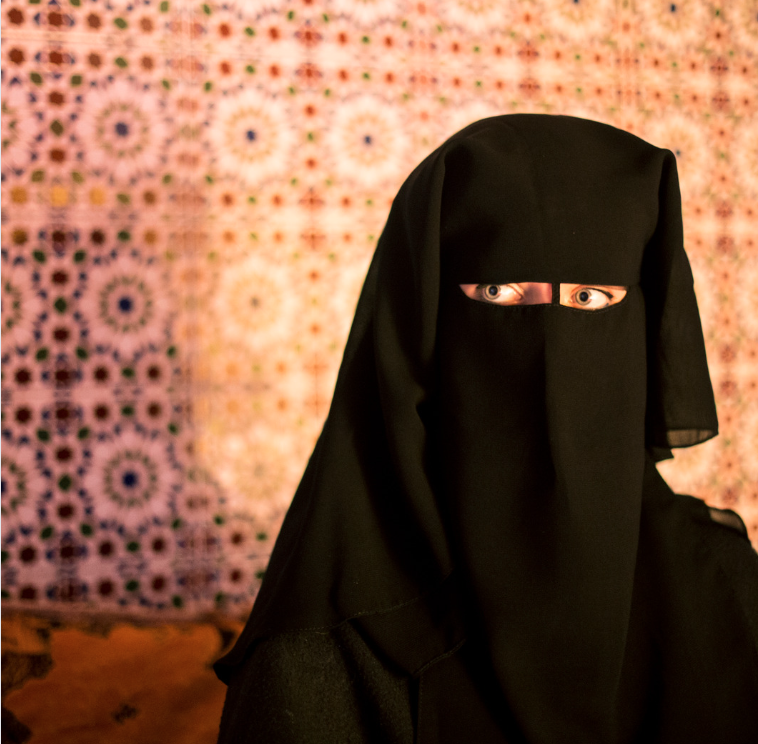On Sunday, August 27, the evening before French students started back at school for the new academic year, Gabriel Attal –the newly appointed French Minister of Education– announced the prohibition of the abaya at schools. To many, this did not come as a surprise, as two years prior to the 2011 ban on religious veiling of the face in public settings, former President Nicholas Sarkozy proclaimed: “We cannot accept imprisoned women […] in our country, cut off from all social life, deprived of any identity.”
The ban in question was specifically applied to what is referred to in French as the “voile intégral,” which is often translated as the full veil, including any form of veiling which fully covers the body and the face, such as the burqa and the niqab.
Liberal Feminist Scholarship
Liberal feminists in contemporary France argue that the ban liberates Muslim women from what is perceived as a symbol of oppression by wearing the full veil. This liberal feminist argument is founded in the principle of French secularism, or laïcité, specifically neutrality and freedom of conscience.
When the full veil ban was first introduced in 2011, the National Assembly claimed that it “advocates the strengthening of measures aimed at promoting equality between women and men.” Similarly, according to Sarkozy: “The issue regarding the burqa is not a religious one. It is an issue concerning the freedom and dignity of women. It is a sign of enslavement; it is a sign of abasement.”
Contemporary liberal feminist rhetoric regarding the ban mirrors these statements. In an interview conducted by Loyer and Papin, Fourest, a French writer and journalist known for her liberal feminist views, contends that the full veil presents a significant challenge to women’s rights and freedoms. For Fourest, the full veil raises questions about the submission of the woman and gendered inequality: “Submission does not simply mean submitting oneself to male domination, but also submitting oneself to a religious idea, a transcendent idea which imposes an authority on you, offering you a reassuring, well-establishing framework.” As a victim of her religion and in accordance with the values of equality between all persons, therefore, it is assumed that the Muslim woman must be emancipated. Similarly, in an interview with the Financial Times, French feminist and politician Fadela Amara claims that the full veil embodies “the oppression of women, their enslavement, their humiliation.”
Post-colonial Feminist Scholarship
Postcolonial feminist scholarship attempts to reveal the possible shortcomings in liberal feminist arguments.
First, liberal feminist rhetoric about the ban designates a particular meaning to the veil– that it is oppressive. With liberal feminist thought perceiving the choice to wear a full veil as an oppressive practice, it comes to be understood as incompatible with laïcité. However, as Mohanty, a postcolonial and transnational feminist theorist, explains in “Under Western Eyes: Feminist Scholarship and Colonial Discourses”, “while there may be a physical similarity in the veils worn by [Muslim] women […], the specific meaning attached to this practice varies according to the cultural and ideological context.”
In a study conducted by Open Society Foundations, Unveiling the Truth: Why 32 Muslim Women Wear the Full-face Veil in France, the testimonies of 32 Muslim women living in France were surveyed in an attempt to shed light on their authentic experiences and perspectives on the ban. They share their personal reasons for wearing the full veil and their thoughts on the ban for further clarity.
For many, the full veil represents “a deeper affinity to God, an affinity described with words such as ‘piety’ and ‘modesty’. Some spoke about a sense of ‘pride’, ‘elation’ and ‘ecstasy.’” For Bushra, the full veil “is a way of coming closer to Allah.” For others, the full veil is a form of protection from the unwanted attention of men and an expression of resistance against social perceptions of women. Vivi says that by wearing the full veil she can fully embrace her femininity and maternity; it is “a way for me to feel rehabilitated as a woman.”
Liberal feminist scholarship, however, does not necessarily exclude the possibility that every woman will wear the full veil for her own reasons. For example, Amara states that it is important to mark the difference between those who wear the full veil by religious conviction and those who wear it due to their circumstances. Thus, perhaps Amara recognises the multiple subjectivities of the Muslim woman, which Mohanty claims is what happens when the single, repressive, meaning is designated to the full veil, and homogenises the subject who wears it.
The Implications
The oppressive meaning assigned to the full veil by contemporary liberal feminists has implications for the subjectivity and agency of the Muslim woman in France. Audre Lorde, an American professor who focused on intersectional feminism in the 20th century, argued that to fully understand the ways in which a person is oppressed, differences in class, sexual orientation, race and age between people cannot be overlooked. Lorde found herself “constantly being encouraged to pluck out some one aspect of myself and present this as the meaningful whole, eclipsing or denying the other parts of self.”
Similarly, professor of Philosophy at McGill, Alia Al-Saji, contends that in the West “veiling is constituted as the equivalent of de-subjectification – a lack of subjectivity, a victimhood or voicelessness […].” She describes veiling, as conceived of by liberal feminists, as an instrument of immobilisation and invisibilisation – an obstacle to their subjectification.
Moreover, the idea that clothing is merely an item which covers the body is possibly an overly simplistic presumption to make. French philosopher Maurice Merleau-Ponty makes this suggestion when he argues that clothing can be seen as an extension of the body, and therefore a part of one’s sense of self, such that its removal would lead to a change in self-perception. Clothing, he claims, is a vessel through which people perceive and interact with the world and themselves. Therefore, in this sense, because veiling can form part of the subject, unveiling does not emancipate the Muslim woman but instead takes away her sense of self.
Foucault and Governmentality
The second implication relates to agency. By banning what the Muslim woman can or cannot do, and regulating her behaviour in a fundamental way, the ban on the full veil represents a form of governmentality in the Foucauldian sense. During the late 1970s at the Collège de France, Foucault, a prominent French philosopher and social theorist of the 20th century, delivered a series of lectures, entitled Security, Territory, Population, and The Birth of Biopolitics. In these, he spoke about the governance of populations and conceptualised the idea of biopower. Specifically, Foucault was interested in “how to govern oneself, how to be governed, by whom should be accepted to be governed, how to be the best possible governor?”. For Foucault, modern societies operated on the concept of biopower, where governing bodies turned their attention from governing the state to governing the particular individuals who make up the state. Power, he suggested, was not only exercised through the state but also through other mechanisms, such as social norms, technologies, and institutions. Ultimately, this would shape individuals’ behaviours and attitudes.
Likewise, in “The Subject and Power”, Foucault writes that the government regulates “the way in which the conduct of individuals or of groups might be directed.” Banning the full veil allows the state to regulate the behaviour and attitudes of individuals who adhere to this practice, and ultimately shape them in a way that is aligned with the state’s secular values, objectives and identity. The consequence is that the Muslim woman cannot make her own choice about what to wear, and is therefore deprived of her agency.
While liberal feminist narratives in favour of the full veil ban in France are defended in the name of laïcité, they are simultaneously premised on a discourse which undermines and excludes the Muslim woman. The postcolonial feminist will show that assigning an inherently oppressive meaning to the full veil ignores the implications for the Muslim woman’s subjectivity and agency.
Viewed through a feminist perspective–or any for that matter– the debate surrounding the burqa ban is complex, and far from a clear, objective truth. It is nuanced and constructed by the discourse itself and those who speak about it, including state officials, news reporters, and contemporary feminists and theorists. It raises questions about who has the privilege and power to decide what Muslim women, or marginalized communities in any sense, can and cannot do, and more fundamentally, what it means to be a Muslim woman.
Edited by Sahar Rabbani






0 Comments